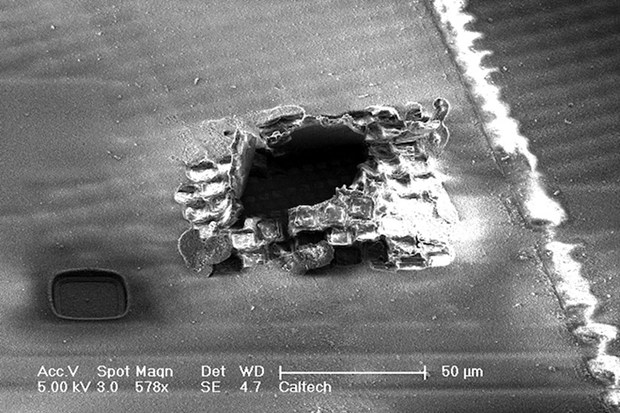Are self-healing chips the future?
February 19, 2013

Research work by a team at the California Institute of technology (Caltech) has brought about the possibility of an intriguing future with self-healing chips. These are not some new potato-based snack but computer components with the ability to heal themselves, making even more reliable hardware available in the very near future.
By building tiny amplifiers for the chips they are capable of withstanding major damage, dealing with transistor failures and even coping with battery problems. It is also believed that it could lead to faster chips with much improved performance.
Coping with changing circumstances
The power amplifiers Caltech built were minute (76 fitting on a 1 cent piece) and had sensors that monitor critical factors like temperature, current, power and voltage. This information is then passed to a custom application-specific integrated circuit on the amplifier that analyses the performance and decides if it needs to adjust any of the changeable parts of the processor to cope.
This ability to cope with changing circumstances is akin to the human brain, which will automatically compensate and look for an optimum state.
Useful in extreme and remote sites
Although in its early state the technology is already being looked at for many possible uses. It is thought it would be most beneficial in products where dependable performance is important. This would mean things like servers that support processes in remote areas and also military applications. They could also be used in extreme conditions such as satellites and remote weather stations.
The self-healing process will also extend Moore’s law by improving the process yield in smaller feature size processes. So, look out for self-healing chips appearing in your computers soon.